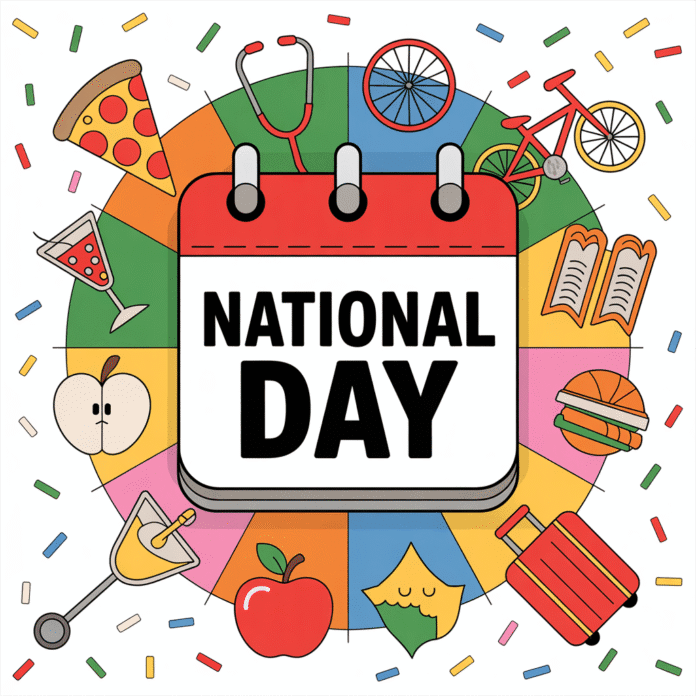5 Unique and Meaningful Holidays Celebrated on June 18
Some days on the calendar come and go without much notice—but others offer rich stories, surprising history, and powerful reasons to celebrate. June 18 is one of those special days filled with quirky observances, global significance, and opportunities for reflection and fun. Whether you’re looking for inspiration, joy, or a good laugh, today has something for everyone.
Let’s dive into five of the most interesting holidays celebrated on June 18 around the world.
1. International Picnic Day
Origin & History:
International Picnic Day doesn’t have a clearly documented origin, but it likely stems from 18th-century French traditions. The word “picnic” itself comes from the French pique-nique, a term used for informal outdoor meals with shared dishes. Over time, the concept evolved into a global pastime, symbolizing leisure, connection, and freedom.
How It’s Celebrated:
-
Families and friends gather in parks, beaches, or backyards with blankets and baskets.
-
Local communities often host public picnics, sometimes paired with concerts or games.
-
Social media is full of picnic spread photos and scenic locations.
Why It Matters:
In our fast-paced digital age, a picnic represents a return to simplicity and togetherness. It’s a gentle reminder to unplug and enjoy nature with people you care about.
2. Autistic Pride Day
Origin & History:
Founded in 2005 by the autism advocacy group Aspies For Freedom, Autistic Pride Day is a self-advocacy movement that highlights the importance of neurodiversity. Unlike awareness days that frame autism as a condition to be fixed, this observance emphasizes acceptance, inclusion, and celebration.
How It’s Celebrated:
-
Online and in-person events focus on education and empowerment.
-
Many autistic individuals share their stories and experiences on social media.
-
Pride parades and discussions are held by neurodiverse communities.
Why It Matters:
This day shifts the narrative around autism, encouraging society to embrace differences rather than attempt to “normalize” them. It empowers autistic individuals to speak for themselves and demand space in every aspect of life.
3. Go Fishing Day
Origin & History:
Go Fishing Day is believed to have emerged in the United States as a lighthearted call to enjoy one of humanity’s oldest survival skills turned recreational sport. Whether it’s in a mountain stream or a neighborhood pond, fishing has always connected people to nature.
How It’s Celebrated:
-
Fishing enthusiasts take the day off to visit their favorite spots.
-
Families use it as a chance to teach kids about patience and conservation.
-
Local fishing clubs may host events or contests.
Why It Matters:
Beyond relaxation, fishing fosters mindfulness and appreciation for the environment. It’s a bonding activity that spans generations and cultures.
4. Sustainable Gastronomy Day (UN Observance)
Origin & History:
Adopted by the United Nations General Assembly in 2016, Sustainable Gastronomy Day emphasizes the role of cuisine in promoting sustainable development, agriculture, and biodiversity.
How It’s Celebrated:
-
Restaurants promote local, seasonal menus.
-
Educational campaigns encourage people to reduce food waste and eat mindfully.
-
Farmers’ markets and culinary schools often host themed events.
Why It Matters:
This holiday reminds us that every bite we take affects the planet. By choosing sustainable foods, we can help combat climate change and protect future food security.
5. International Panic Day
Origin & History:
A humorous holiday with unclear roots, International Panic Day gives people “permission” to freak out—just for a moment. While silly on the surface, it’s also a reflection of real-world stress and anxiety that many experience in modern life.
How It’s Celebrated:
-
Some use the day to vent their frustrations online.
-
Others take it as a reminder to not panic and instead focus on stress relief.
-
Wellness blogs use it as a teaching moment to talk about coping mechanisms.
Why It Matters:
Mental health is no joke. By acknowledging our panic—even playfully—we’re validating the emotional weight people carry and encouraging open conversations about how to manage it.



